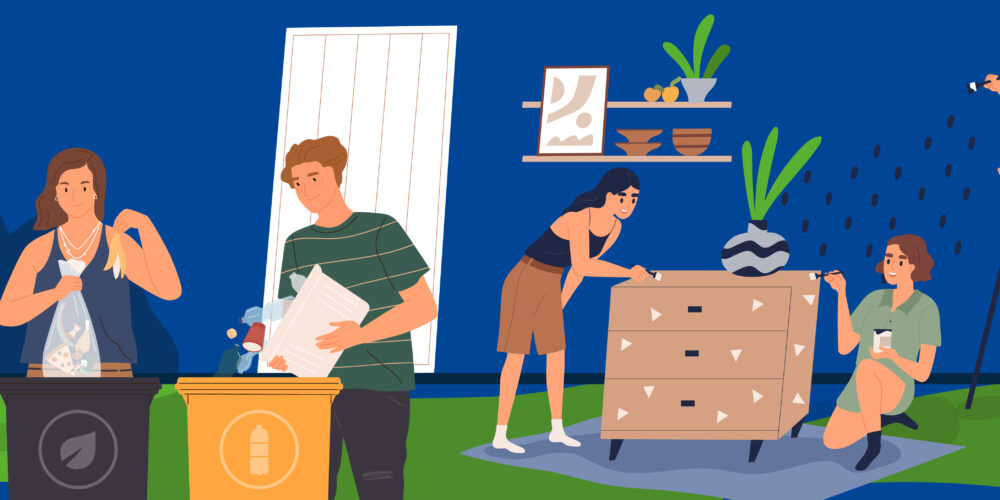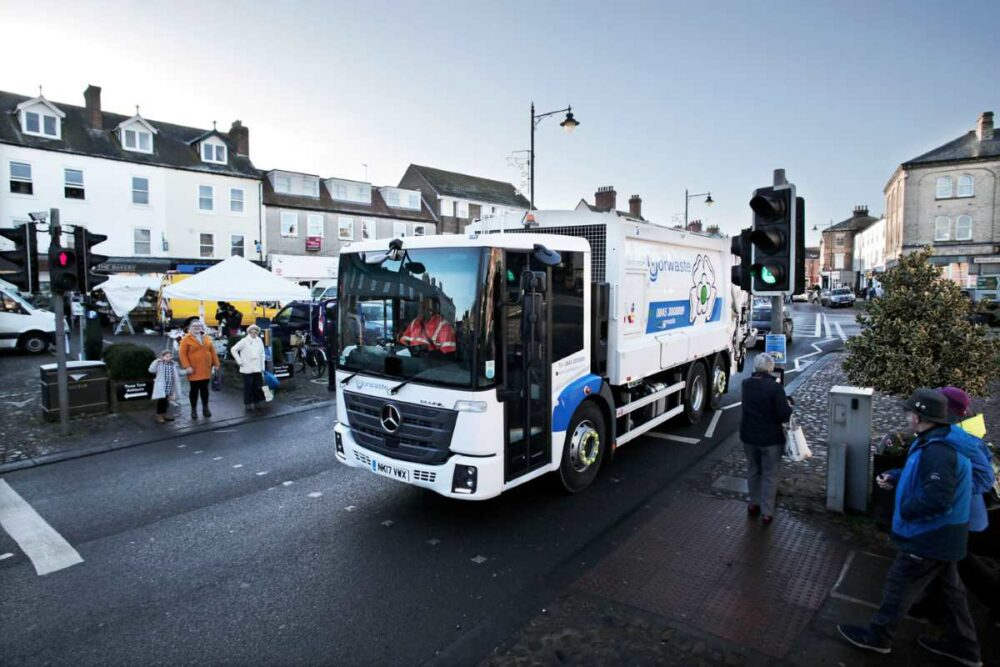Make Going-Green Your Goal for 2023
Research published last January revealed that 1 in 6 people wanted to live more sustainably. Recycling plays a huge part of a sustainable lifestyle, but ‘wishcycling’, AKA, disposing of reprocessable waste incorrectly, can actually have the opposite effect, contaminating perfectly good items and creating further waste. Here’s our guide to getting off on the right recycling foot following the festivities:
Reuse
- Get creative and resourceful when it comes to reducing waste. Here are some ideas:
- Wrapping paper – Embrace your inner grandma and take care with wrapping when opening presents. Reusing paper will save the planet and money.
- Cards – save your Christmas cards and repurpose them for gift tags, place settings or charade cards for next year.
- Decorations – buy good quality items and take care of your decs, and they will bring Christmas cheer for decades to come.
- Cracker gifts – if you’re not sure what to do with those scrappy bits of plastic, keep hold of them and use them in your homemade crackers next year.
- Unwanted gifts – one person’s ugly socks and terrible smellies are another’s dream present – just make sure you don’t ‘regift’ them to the person that gave them to you.
- Christmas trees – buy a pot grown tree and spend the year nurturing it in your garden ready for its annual bauble display.
- Food – leftovers are the best bit about Christmas. Invest in good storage solutions and incorporate leftovers into soups, stocks and sandwiches.
Donate
- If you no longer have use for certain things, remember there many people out there that can make good use of perfectly good household items the whole year round, such as:
- Good quality toys – must not be placed into the household recycling bin, but most charity shops welcome donations of clean, functioning, complete toys.
- Unwanted gifts – your local charity shop will be pleased to receive good quality gifts.
- Electrical items – donate old TV, games consoles, laptops or phones to a charity that accepts electrical goods. Make sure you erase your data.
- Food – unopened, non-perishable food items will be welcomed by food banks throughout the UK.
Recycle
- If items cannot be reused or repurposed in some way, a lot of common Christmas waste can be recycled, such as:
- Clean card and paper – this includes Christmas cards, non-foiled wrapping paper, clean gift boxes and packaging and uncontaminated food packaging, such as outer sleeves.
- Glass – give bottles and jars a rinse and pop them into the recycling bin. If you have too many for the bin, bottle banks can often be found in town centres and at HWRCs.
- Peelings – worms love raw vegetables, so make sure you pop your peelings and cast offs into your compost bin so they can be used to nourish your garden come summer.
- Real Christmas trees – take to your local HWRC to be placed into the garden waste skip.
- Artificial trees – ideally, these will be reused, but if they are no longer needed, check with your local council to find out if your tree can be recycled at your nearest HWRC.
- Plastic – most clean drinks and milk bottles, cooking oil bottles, pots, tubs and trays can be placed into your household recycling bin. Check the on pack recycling guide.
- Tins and cans – clean metal drinks and food cans are welcome in your household recycling bin.
- Plastic bags – these cannot be placed into your household recycling bin, but most supermarkets accept them.
- Single use batteries – these can be correctly disposed of at many supermarkets and HWRCS.
- Rechargeable batteries – are the greener, cheaper option. Do not place old rechargeable batteries into your general waste, including those contained in electric toothbrushes and other rechargeable items, as this can cause fires.
- Unusable/broken plastic toys – take items to your local HWRC, where operatives can advise on how to dispose of plastic waste responsibly.
Recover
- Sadly, some things cannot be reused or recycled, however, if placed into recycling bins, can cause all kinds of issues, wasting time, money and causing contamination of other items that could be recycled. These include:
- Food contaminated paper and card – things like kitchen roll, coffee cups and takeaway boxes must not be placed into your recycling bin.
- Glassware and crockery – festive breakages, such as cookware and wine glasses, cannot be recycled. Wrap them well before you place them carefully into the general waste bin to avoid anybody getting injured.
- Plastic straws – opt for reusable straws if you can. Plastic, single use straws cannot be recycled.
- Laminated foil packaging – pet food and baby food pouches cannot be recycled. Look out for recyclable symbols when purchasing packaged food.
- Sticky notes – we all love the post it note parlor game… “am I Santa, Brad Pitt, my mum?” However, sticky notes cannot be recycled, so perhaps stick to charades.
- Receipts – once they’ve decided they’re keeping the gift, pop the receipts into the generale waste bin as these are non-recyclable due the paper they are printed on.
- Glitter and tinsel – these cannot be recycled, so consider ‘do I really need this?’ before you buy.
- Yorwaste is committed to supporting the circular economy by helping the public to reduce waste and recycle items wherever possible. Follow our guide for top recycling tips for preparing your business waste for recycling.

